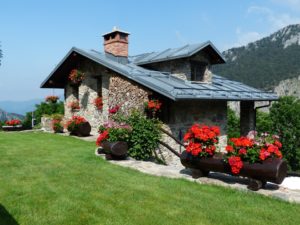Wow…this one is very spicy and in fact, it was suggested by someone that reached out to me by e-mail. You know what that means? That your topic of discussion can also be mentioned here, assuming that you let me know.
This actually a very interesting subject: we pretty much (almost all of us) know someone who does this for a living, or did it for a while to make some cash and to move on to other real estate projects. Flipping homes, is actually very good for someone that can do it in a timely manner and has the “know how” to get things done around the home. So you basically  need to know how to build it up. It makes sense for people that know how to work a hammer and control a small group of other workers, building the home back up, and thus raising the value of the property. Whenever someone flips homes however, it is like playing the music chairs. You better be sitting on a chair when the music stops.
need to know how to build it up. It makes sense for people that know how to work a hammer and control a small group of other workers, building the home back up, and thus raising the value of the property. Whenever someone flips homes however, it is like playing the music chairs. You better be sitting on a chair when the music stops.
What I mean by that, is that real estate of course works in cycles. You got the good and the bad times. So whenever you decide to flip a home, you better be able to get it done fast, to get it back on the market and get rid of it. You don’t want to buy an older home, and decide to sell it a few months down the road (a lot can change.) If you could buy and re-sell the house in 1 months, that would be ideal (I know in most cases it’s not possible) but that is the only true way you can be more secure. Whether this is profitable or not though, a factor you need to bare in mind is what your time is worth. In other words, if you are spending most of your time preparing these homes, when you could be working on larger real estate deals, then you may be leaving a lot of money on the table. So you need to make sure that what you are doing makes financial sense.
Now has does that compare to buying foreclosed homes? Well…you need to research the route of the problem. In other words, why was it foreclosed? Is it a bad product, does it never get appraisals? What is wrong with it? Those are things you need to find out. So although I don’t know if I can compare the flipping homes strategy with buying foreclosed places on the same level, I can say that flipping homes (if done right) will probably be safer. I mean if the banks are practically giving that foreclosed home out for free, then you are an idiot to not take it. For example, in the 2008 disaster, a lot of places (and especially many golf courses) couldn’t keep up with the bills and interest rates in their loans, so those were sold for dirt cheap prices. Donald Trump and others like Robert Kiyosaki bought quite a few golf courses back then. It made sense, because markets had bottomed out. But as I said: foreclosed places are more risky. Because the only reason they are being sold, is because of pour performance. You need to be certain that you can do something better than the old owner.
Flipping homes is something done mostly by families: the father has the experience and tools to get the projects done, and the sons or other relatives follow along. Many people will do it just for the fun of it. Also, you don’t need (in most cases) to put in a large investment. Since you are buying up older places, you get good bargains and then if you are connected with good realtors, you can get the thing on the market with a great profit for you. But that of course you should know, isn’t real estate investing. That is like having a construction job. Investing in real estate, doesn’t mean flipping homes. Flipping homes, is something like buying products (valuables) from E-bay to sell them down the road at a better price. It’s just a product that you push around. You are barely keeping it for 6 months. And I ain’t saying that’s not okay: that’s totally cool. But it’s not considered the traditional real estate investing: that works more as a product.
Was I able to highlight the biggest differences? I didn’t want to do a pros and cons article like I’ve did before. This is something more thorough and something that offers some food for thought.